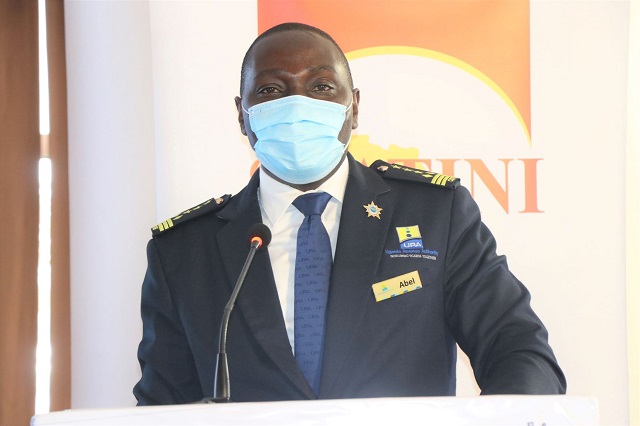
Kampala, Uganda | THE INDEPENDENT | The Ministry of Finance, Planning and Economic Development and the Uganda Revenue Authority have agreed that there is a need to quickly centralize the collection of government revenues within the East African Community.
Article 32 of the EAC Common Market Protocol provides for the harmonization of tax policies to remove distortions and facilitate the movement of persons, goods and capital, to promote trade and investment, while Article 8 of the EAC Monetary Union Protocol provides for harmonization of fiscal policies for the avoidance of harmful competition.
The Commissioner of Economic Affairs at the EAC Affairs Ministry, Leonard Kizito Ojara says Uganda as a member is ready to implement policies geared towards the harmonization of the policies because the government knows its implications.
The countries have persistently introduced new taxes against EAC made products as well as on imports from other regions, sometimes disregarding the common external tariffs.
A study of the tax systems in the EAC by the Southern and Eastern Africa Trade Information and Negotiations Institute, SEATINI, found that the main impediment to implementing this is the failure to apply the EAC Code of Ethics and fear of losing national revenues among others.
SEATINI Uganda Executive Director, Jane Nalunga told a Post-EAC Budget Dialogue that the EAC also has no guiding principles for implementing certain policies.
Taxes that have caused controversies in the region include excise duties on goods produced within the region, as well as the varying rates of Value Addition Tax and recently, Capital Gains Tax.
Kenya, for example, charges a VAT of 16%, while the rest of the countries impose 16% on the products produced within their countries and later sold to other partner countries.
According to URA Commissioner Customs Abel Kagumire, this makes Kenya’s products cheaper than those of other countries, and in the end, promote smuggling.
He however says that harmonization does not mean similar or equal tax rates, but the similarity in the tax policies. This helps to prevent any national tax measures that would harm the free movement of goods, services and capital within the EAC.
Nalunga noted the need to develop an online platform that tracks tax amendments across the region saying that this would greatly support easy comparisons and subsequently early interventions against harmful tax measures.
She says that otherwise, without harmonization, regional integration cannot succeed.
However, Kagumire noted that it is difficult to harmonize some policies because the different levels of development in the region mean some needs of the countries are specific to those countries. “It is important to appreciate that we are at different levels of development as partners. As we are implementing tax harmonization, we need to consider the possibility of having centralized revenue administration collection. That is the big picture”, he said.
Kagumire says until the region implements a system of joint revenue collections, as well as harmonize other policies, competition will persist.
He also says that regional integration can never be achieved without tax harmonization because it helps mitigate tax competition and also reduce the appetite to smuggle if one country has unfavourable tax regimes. Nalunga also says that as companies are given tax incentives, it’s very important for them to provide a good working environment for the countries to achieve this tax harmonization.
Tax harmonization involves adjusting tax systems of different jurisdictions in the pursuit of a common policy objective.
Of the East African countries, Uganda has moved furthest in implementing EAC protocols relating to tax, trade and movement of persons, according to the study by SEATINI.
Leonard Wanyama, the Coordinator of the East Africa Tax and Governance Network said there is a lot of lack of political will amongst the countries, calling on them to take the example of Uganda.
****
URN
 The Independent Uganda: You get the Truth we Pay the Price
The Independent Uganda: You get the Truth we Pay the Price



